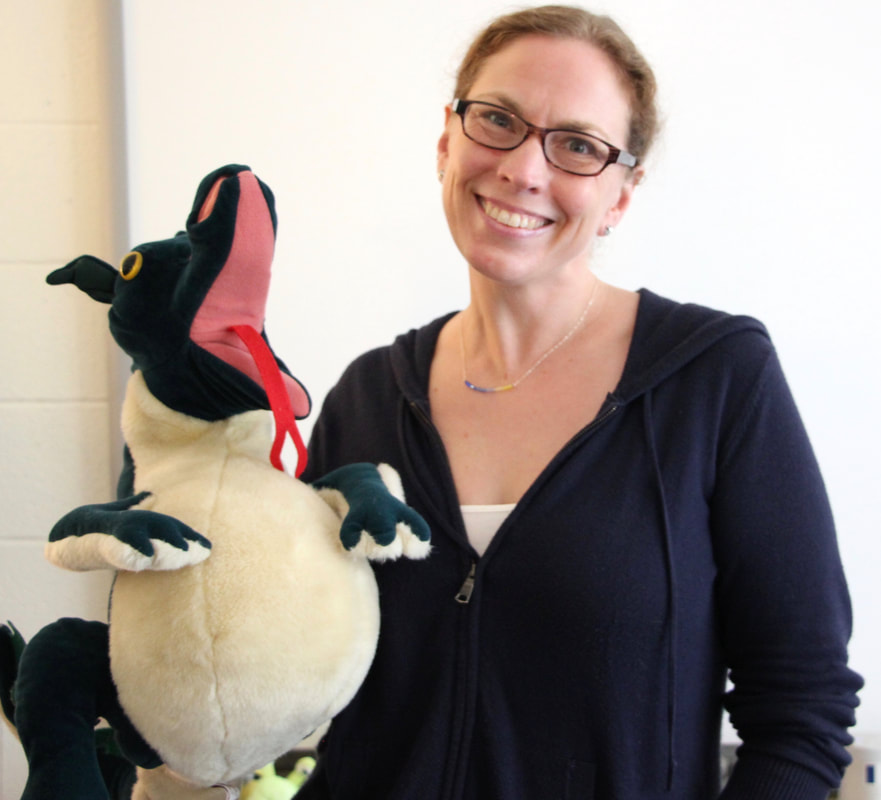|
This year at the VFLA annual conference, I was lucky enough to "share the stage" with the amazing Laurie Clarcq. After lunch, I gave a short follow-up to a session I had done last year at the VFLA conference on Movie Talk. The focus this year was parallel storylines, which I had seen for the first time at NECTFL in February. Mike Coxon, Eric Herman, and Blaine Ray did an amazing demo of this technique that I knew would change my teaching. So I thought and thought, and decided to do this activity using "Runaway" as my Movie Talk video. (Check out that video here.) My dad was going to come into my classroom to film this, and I was planning on using that footage as the focus of my presentation. But, it was March, and I live in Vermont, and Mother Nature decided to throw a curve ball. We had a huge snow storm the day I was going to do a MT with a parallel storyline for the first time, and alas, no school. I had no idea what to do until I was talking to a (non language teacher) friend who suggested I do the lesson with live teacher actors as a demo at the conference since I didn't have a video of my class. It ended up being genius. Teachers still had the chance to see this technique in action, and I had a "dry run" before actually trying it with my sixth graders. It was relatively successful: 80% of those who responded to our evaluation strongly agreed or agreed with the statement "I found Allison's presentation helpful and useful." One respondent said, "Thank you for the reminder of how this can work. I love your demonstrations and your energy." The next day, Laurie spent the day working with me and several colleagues. She had a great idea: I should teach the lesson I had intended on filming with my students prior to the conference that day. I agreed to take over from my substitute for one class, and Laurie and my colleagues were able to watch the lesson in action. Here's a video of the class; you may want to read the rest of this post before watching the video. The lesson unfolded this way: I prepped the vocabulary the way I normally (see this old video from last year, when I was doing a more traditional MovieTalk lesson).
Once I PQA-ed and gestured the vocabulary important to the video, I showed the first bit of the video and did some questioning, as I normally do. Then, I stopped. I chose two student actors, who would act out a story that paralleled the plot of the MT video. We had watched as far as the refrigerator's handle falling off. We then carried on, abandoning the original video and shifting to traditional TPRS story-asking. Once we had come to the end of the plot for our new story, we finished the video. I did not pause and ask questions while we watched the video, as I normally do. Here's where things got interesting. I did some of my traditional follow-up activities: true/false, Pictionary, put the events in chronological order. We then moved on to a reading of the original video. (You can check one of those out here.) I did this slightly differently this time. Normally, I write the reading and do activities with it. This time, I had students retell the plot of the video as I wrote it down. I projected the story on my SmartBoard, so students could see in real time what I was writing. (I have three classes, and we ended up with three different readings. If you click here, you'll find a folder containing all three versions.) During the next class, we did the same thing with the plot of the parallel storyline that students acted out. In class, I then had students draw storyboards of the parallel storylines (We used a sheet that's 3x3, and I gave students two minutes per square. I wasn't aiming for amazing drawings, just something they could use for their homework.) Students had two homework assignments: 1-show the video to a family member and narrate during the viewing, and 2-retell the parallel story using their storyboards as a "script." However, it was at this point that things took an interesting turn. When students were retelling the parallel storyline to me and I was typing it, I realized that it seemed a lot like a script. So, we began to modify it. And it took off. We ended up creating a whole play from our script. In two of the classes, each student had a different role: actor, narrator, or, in one class, producer. In the third class, every student wanted to act, so we did three different versions of the same script. Here's one of the first kinds of videos, with all student actors. I'm still in the process of finishing these videos, but I'll let you know when they're all done.
Sometimes you just have to run with what interests the students. I'll admit, there was a lot more English spoken than I would have liked during the actual filming of the videos, but seeing the students' enthusiasm and engagement made me realize how worth it it was to "go with the flow." I'd love to hear your thoughts on this, or how you've used MT and parallel story lines in your classes, successfully or not! Merci!
0 Comments
I've been toying around with the idea of coming back to blogging. I started my first blog in 2011, immediately after having been to my first TPRS conference with Carol Gaab of Fluency Matters in Cancún, Mexico. (You can check it out here.) But, like life is wont to do, other things took over my to-do list and blogging fell by the wayside. There are so many blogs out there that I love checking out (I'll post a list of those soon), and I don't think I will ever get to the prominence of these amazing people, but maybe someone will read something here that helps them out. I want to be able to share my experiences with others, but also use this as a format to process things that happen in my classroom.
I spent a long time trying to come up with a name for my blog. I tried finding anagrams for comprehensible input, but I wasn't really psyched with any of the results. (The Public Rennie Smop? Blue Chip Pennie Storm? Be Nice Short Line Pump? Munich Beer Split Open? OK, that last one isn't bad...) So I looked up "input" in French. I found a couple of answers, but alimentation was my favorite. It means "input" as in power to a machine, but it also means "nutrition." Fascinating. I like to think that I'm feeding my students' minds. I want them to feel nourished when they leave my classroom, in a cerebral way. But, I want it to become "automatic." They are not processing language the way I did (running through verb conjugations in my head, worrying about whether my definite article is correct), they're simply using it. And to think of the multitude of ways I can deliver language: reading as the main course (the "meat" of the matter, or, in my case, the tofu!), PQA as salad (cleansing, simple, easy), Movie Talks as dessert (fun!). So that's where I'm going with this. I hope that you will follow me along my journey, as I am really excited to head down this path. Bisous. |
AuthorAllison Litten, the 2019 VFLA TOY, teaches French at the Marion Cross School, a public PreK-6 school in Norwich, Vermont. This is her twenty-third year teaching, and twentieth at Marion Cross. Archives
May 2023
Categories
All
|


 RSS Feed
RSS Feed
